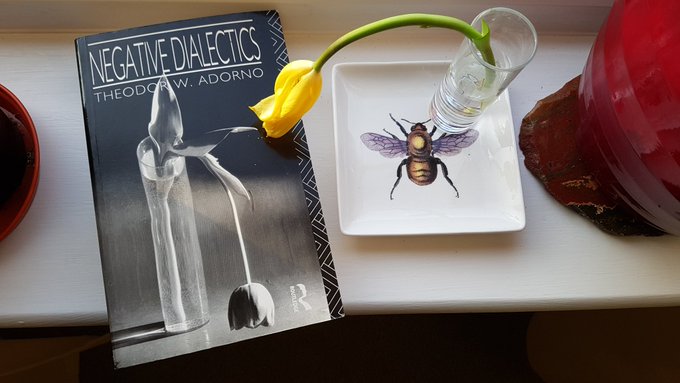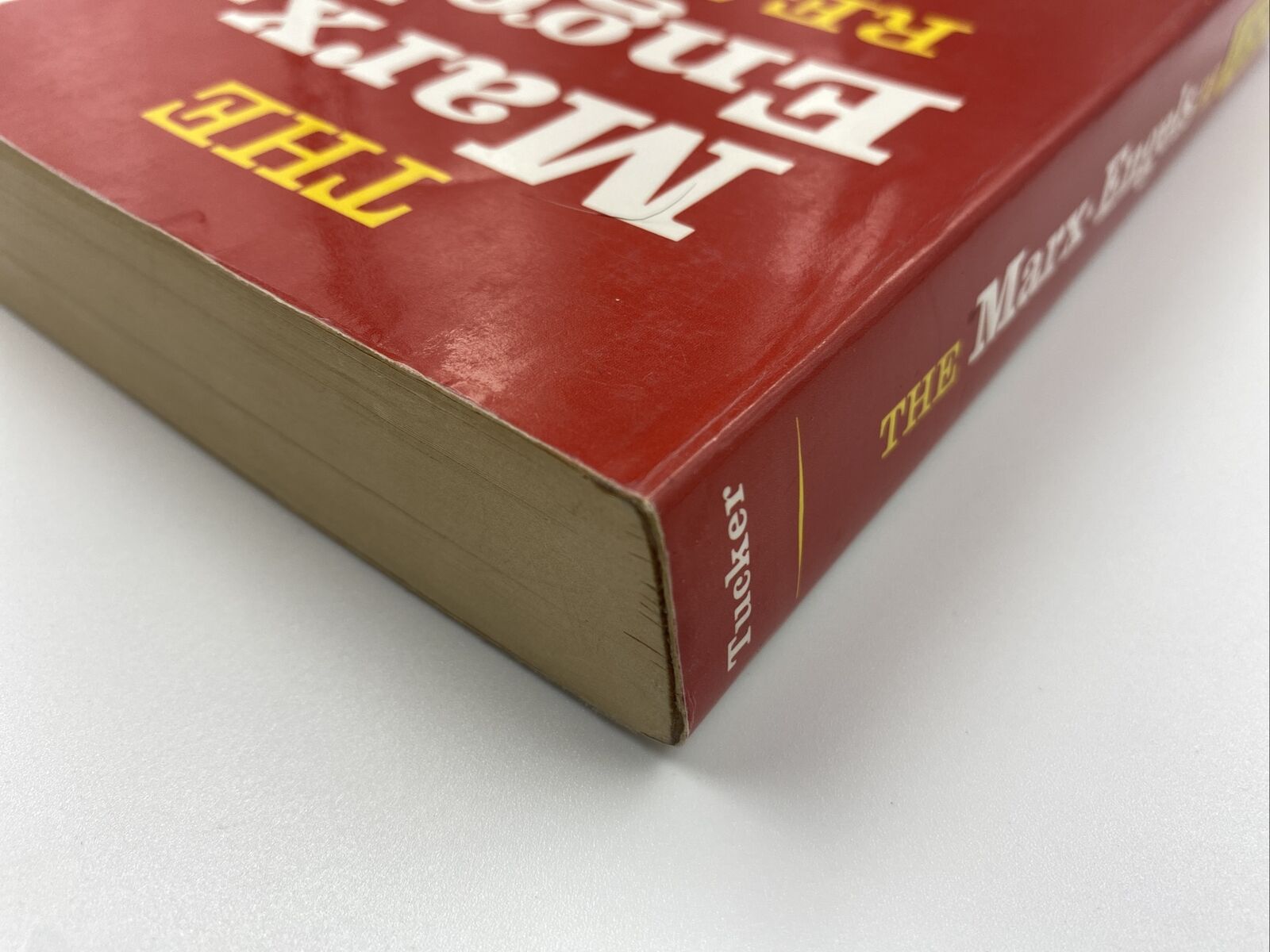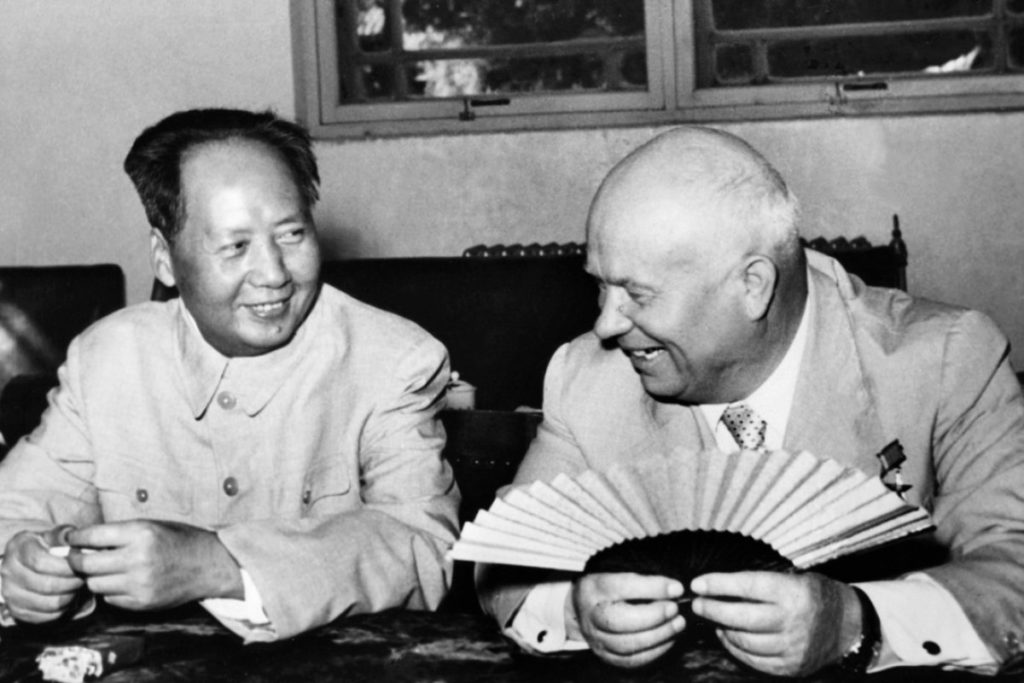
"Adorno seems to mean that critical consciousness, including his own, is almost impossible. History, in some sense, has come to a halt. Negative Dialectics is an attempt to break out of this unbreakable paradox and to invite others to do the same. . . . Anyone who is involved in the possibility of Marxism as a mode of cognition sui generis, at a time when critical consciousness can no longer be even 'imputed' to an ideal-typical class . . . must read Adorno's book."
-- Gillian Rose, Review of Adorno's Negative Dialectics (1976)
( • required / + recommended readings)
Required background reading:
• Chris Cutrone, "Revolution without Marx? Rousseau, Kant and Hegel" (2013); Review of Andrew Feenberg, The Philosophy of Praxis (2015); "Why still read Lukacs? The place of 'philosophical' questions in Marxism" (2014); "Ends of philosophy" (2018); "On philosophy and Marxism" (2020); and “The negative dialectic of Marxism” (2021)
Recommended supplemental reading:
+ Adorno, Lectures on Negative Dialectics; History and Freedom; Introduction to Dialectics; Ontology and Dialectics; Metaphysics: Concepts and Problems
Primary sources:
• Theodor Adorno, Negative Dialectics (1966, trans. E.B. Ashton, 1973)
+ Alternate translation by Dennis Redmond (2001/2021) [2021 updated PDF]
Charts of terms:
+ Being and becoming (freedom in transformation) / immanent dialectical critique chart of terms
+ Kant's 3 Critiques [PNG] and philosophy [PNG] chart of terms
+ Capitalist contradiction chart of terms
+ Commodity form chart of terms
+ Reification chart of terms
+ Adorno's critique of actionism chart of terms
Week 1: June 5, 2021
• Gillian Rose, Review of Adorno's Negative Dialectics (1976)
• Theodor W. Adorno, "Why still philosophy?", Critical Models pp. 5-17 (322-325nn.)
+ Adorno, "The actuality of philosophy" (1931)
• Chris Cutrone, "Ends of philosophy" (2018); "On philosophy and Marxism" (2020); and “The negative dialectic of Marxism” (2021)
Week 2: June 12, 2021
• Adorno, Negative Dialectics, Prologue (Preface and Introduction)
(The Possibility of Philosophy 3 Dialectics Not a Standpoint 4 Reality and Dialectics 6 The Concern of Philosophy 8 The Antagonistic Entirety 10 Disenchantment of the Concept 11 “Infinity” 13 The Speculative Moment 15 Presentation 18 Attitude Toward Systems 20 Idealism as Rage 22 The Twofold Character of the System 24 The Antinomical Character of Systems 26 Argument and Experience 28 Vertiginousness 31 Fragility of Truth 33 Against Relativism 35 Dialectics and Solidity 37 The Privilege of Experience 40 Qualitative Moment of Rationality 43 Quality and Individual 44 Substantiality and Method 47 Existentialism 49 Thing, Language, History 52 Tradition and Knowledge 53 Rhetoric 55)
Week 3: June 19, 2021
• Adorno, Negative Dialectics, Part One: Relation to Ontology: I. The Ontological Need
(Question and Answer 61 Affirmative Character 65 Incapacitation of the Subject 66 Being, Subject, Object 69 Ontological Objectivism 70 The Disappointed Need 72 “Deficiency=Profit” 76 No Man’s Land 77 Unsuccessful Realism 78 On Categorical Vision 80 Being 83 “Sense of Being” 85 Ontology Prescribed 87 Protest Against Reification 89 The Wrong Need 92 Weakness and Support 94)
Week 4: June 26, 2021
• Adorno, Negative Dialectics, Part One: Relation to Ontology: II. Being and Existence
(Immanent Critique of Ontology 97 Copula 100 No Transcendence of Being 105 Expressing the Inexpressible 108The Child’s Question 110 The Question of Being 112 Looping the Loop 115 Mythology of Being 117 Ontologization of the Ontical 119 Function of the Concept of Existence 122 “Dasein in Itself Ontological” 124 The Nominalistic Aspect 126 Existence Authoritarian 127 “Historicality” 128)
Week 5: July 3, 2021
• Adorno, Negative Dialectics, Part Two: Negative Dialectics: Concepts and Categories
(The Indissoluble “Something” 134 Compulsory Sustantiveness 136 “Peephole Metaphysics” 137 Noncontradictoriness Not to be Hypostatized 139 Relation to Left-wing Hegelianism 143 “Logic of Disintegration” 144 On the Dialectics of Identity 146 Cogitative Self-reflection 148 Objectivity of Contradiction 151 Starting Out from the Concept 153 Synthesis 156 Critique of Positive Negation 158 Individuality Not the Ultimate Either 161 Constellation 162 Constellation in Science 164 Essence and Appearance 166 Indirectness by Objectivity 170 Particularity and the Particular 173 Subject-Object Dialectics 174 Reversal of the Subjective Reduction 176 Interpreting the Transcendental 178 “Transcendental Delusion” 180 The Object’s Preponderance 183 The Object Not a Datum 186 Objectivity and Reification 189 Passage to Materialism 192 Materialism and Immediacy 194 Dialectics Not a Sociology of Knowledge 197 The Concept of Mind 198 Pure Activity and Genesis 200 Suffering Physical 202 Materialism Imageless 204)
Week 6: July 10, 2021
• Adorno, Negative Dialectics, Part Three: Models: I. Freedom
(On The Metacritique of Practical Reason 211 “Pseudoproblems” 211 A Split in the Concern with Freedom 214 Freedom, Determinism, Identity 216 Freedom and Organized Society 217 The Impulse Before the Ego 221 Experimenta crucis 223 The Addendum 226 The Fiction of Positive Freedom 231 Unfreedom of Thought 233 “Formalism” 235 The Will as a Thing 237 Objectivity in the Antinomy 239 Dialectical Definition of the Will 241 Contemplation 244 Structure of the Third Antinomy 246 Kant’s Concept of Causality 247 The Plea for Order 249 The Antithetical Argument 252 Ontical and Ideal Moments 255 Repressive Character of the Doctrine of Freedom 260 Self-experience of Freedom and Unfreedom 261 The Crisis of Causality 265 Causality as a Spell 269 Reason, Ego, Super-ego 270 Potential of Freedom 274 Against Personalism 276 Depersonalization and Existential Ontology 279 Universal and Individual in the Philosophy of Morals 281 On the State of Freedom 285 Kant’s “Intelligible Character” 287 Intelligibility and the Unity of Consciousness 292 Truth Content of the Doctrine of Intelligibility 297)
Week 7: July 17, 2021
• Adorno, Negative Dialectics, Part Three: Models: II. World Spirit and Natural History
(An Excursion to Hegel 300 Trend and Facts 300 Construction of the World Spirit 303 “Harmonizing with the World Spirit” 305 The Unleashing of Productive Forces 306 Group Spirit and Dominion 307 The Legal Sphere 309 Law and Equity 310 Individualistic Veil 312 Dynamics of Universal and Particular 313 Spirit as a Social Totality 314 Historical Reason Antagonistic 317 Universal History 319 Antagonism Contingent? 321 The Supramundance Character of the Hegelian World Spirit 323 Hegel Siding with the Universal 326 Relapse into Platonism 329 Detemporalization of Time 331 Dialectics Cut Short by Hegel 334 The Role of the Popular Spirit 338 Popular Spirit Obsolete 340 Individuality and History 342 The Spell 344 Regression Under the Spell 347 Subject and Individual 349 Dialectics and Psychology 351 “Natural History” 354 History and Metaphysics 358)
Week 8: July 24, 2021
• Adorno, Negative Dialectics, Part Three: Models: III. Meditations on Metaphysics
(After Auschwitz 361 Metaphysics and Culture 365 Dying Today 368 Happiness and Idle Waiting 373 “Nihilism” 376 Kant’s Resignation 381 Rescuing Urge and Block 384 Mundus intelligibilis 390 Neutralization 393 “Only a Parable” 399 The Semblance of Otherness 402 Self-Reflection of Dialectics 405)
+ Cutrone, "Ends of philosophy" (2018); "On philosophy and Marxism" (2020); and “The negative dialectic of Marxism” (2021)

Marx-Engels Reader Platypus reading group
Time: Saturdays 2:30PM US EST
April 10 - May 29, 2021
Facebook event: https://www.facebook.com/events/194881882245655
Required reading:
Robert Tucker, ed., Marx-Engels Reader (2nd Edition, 1978)
Recommended background reading:
Franz Mehring, Karl Marx: The Story of his Life (1918)
David Riazanov, Karl Marx and Frederick Engels: An Introduction to Their Lives and Work (1927)
(Selections from Engels’s prefaces, etc. to be added as recommended readings)
(*recommended)
Week One | April 10, 2021 — 1839-44
7-125 (“On the Jewish Question,” “Contribution to the Critique,” and “Economic and Philosophic Manuscripts” etc.)
577-85 “Working-Class Manchester”
*Mehring chapters 1-3
Week Two | April 17, 2021 — 1844-48
126-219 (“Critical Marginal Notes,” “Theses on Feuerbach,” “German Ideology,” “Wage Labor and Capital,” etc.)
469-500 “Communist Manifesto”
*Mehring chapters 4-5
Week Three | April 24, 2021 — 1850-56
“Address to the CL” (501-11), Class Struggles in France and Eighteenth Brumaire (586-617), “On Imperialism in India” (653-664), and “Speech at the Anniversary of the PP” (577-78),
*Mehring chapters 6-8
Week Four | May 1, 2021 — 1857-64
“Marx on the History of his Opinions” (3-6), “Grundrisse” (221-93), “Inaugural Address to the IWMA” (512-19)
*Mehring chapters 9-11
Weeks Five and Six | May 8 and 15, 2021 — Capital
294-468 (and additional selections from the Grundrisse)
*Mehring Chapter 12; *Kautsky, “The Economic Doctrines of Karl Marx” (1887/1903)
Week Seven | May 22, 2021 — The Paris Commune and the Aftermath of the International
“The Civil War in France”
520-555 (Critique of Gotha etc.), 665-680 (etc.)
*Mehring chapters 13-15
Week Eight | May 29, 2021 — Engels after Marx and Marxism
681-768 (selections from Socialism, Anti-Dühring, and Origins of Family, PP, and the State etc.)
556-76 “The Tactics of Social Democracy”
Kautsky, “The Historic Accomplishment of Karl Marx” (1908); and *“Friedrich Engels: His Life, His Work, His Writings” (1899)
"How well Kautsky wrote [when he was still a Marxist]!"
— Lenin, "Left-Wing" Communism — An Infantile Disorder (1920)
• required / + recommended readings
Recommended background reading:
+ Vernon Lidtke, The Outlawed Party: SPD 1878–1890 (1966)
+ Lidtke, The Alternative Culture: Socialist Labor in Imperial Germany (1985)
+ Carl Schorske, The SPD 1905-17: The Development of the Great Schism (1955)
+ James Joll, The Second International 1889–1914 (1966)
Preliminary readings:
• Monty Johnstone, “Marx and Engels and the concept of the party” (1967)
• J. P. Nettl, “The German Social Democratic Party 1890–1914 as a Political Model” (1965)
• Spartacist League, "Kautskyism and the origins of Russian Social Democracy," Ch. 1, Lenin and the Vanguard Party (1978)
Week 1 | June 6
+ Karl Korsch, "The Marxism of the First International" (1924)
• Karl Marx, Inaugural address to the First International (1864)
• Ferdinand Lassalle, Open letter to the German workers’ movement (1863)
Week 2 | June 13
• Mikhail Bakunin, A Critique of the German Social-Democratic Program (1870)
• Bakunin, Marxism, Freedom and the State (1872)
+ Marx, Conspectus of Bakunin's Statism and Anarchy (1874)
• Marx, Critique of the Gotha Programme (1875)
• Marx, Programme of the Parti Ouvrier (1880)
Week 3 | June 20
• Karl Kautsky, The Class Struggle (1892)
+ Eugene Debs, "How I became a socialist" (1902)
+ Debs, "Competition versus Cooperation" (1900)
+ Hellen Keller, "How I became a socialist" (1912)
Week 4 | June 27
• Kautsky, The Social Revolution (1902)
Week 5 | July 11
• Kautsky, The Road to Power (1909)
Week 6 | July 18
• Vladimir Lenin, The Proletarian Revolution and the Renegade Kautsky (1918)
+ Debs, “The Day of the People” (1919)
+ Kautsky, The Dictatorship of the Proletariat (1918)
Week 7 | July 25
• Manifesto of the Communist International to the Workers of the World
• The Organisational Structure of the Communist Parties, the Methods and Content of Their Work: Theses
• The 21 Conditions of Admission into the Communist International [HTML]
Saturday 28 March - Saturday 6 June, 2020
Time: Mar 28, 2020 11:00 AM EST / 04:00 PM CET (BERLIN)
Time, thereafter: 11:00 AM EST / 05:00 PM CET (BERLIN)
Location: ZOOM
Contact Laurie Rojas <laurie.rojas[at]gmail.com> if interested in joining.
Art and politics
• required / + recommended reading
Week 1. Art and politics after postmodernism | March 28, 2020
“[Artists'] work is to sustain the critical moment of aesthetic experience. [Critics' work] is to recognize it.”
-- Susan Buck-Morss, response to Visual culture questionnaire (1996)
• Susan Buck-Morss, response to Visual culture questionnaire (1996)
• Robert Pippin, "On Critical Theory" (2004)
+ Rainer Maria Rilke, "Archaic torso of Apollo" (1908)
+ Being and becoming (freedom in transformation) / immanent dialectical critique chart of terms [PNG]
• Chris Cutrone, "The relevance of Critical Theory to art today" (2011) [PDF]
• Cutrone, "An incomplete project? Art and politics after postmodernism" (2010) [PDF]
No meeting on April 4, 2020 (Platypus International Convention)
Week 2. The meaning of art | April 11, 2020
+ Being and becoming (freedom in transformation) / immanent dialectical critique chart of terms [PNG]
+ Kant's 3 Critiques [PNG] and philosophy [PNG] charts of terms
• Immanuel Kant, Preface and Introduction, Critique of Judgment (1790) [full book PDF]
Week 3. Art and humanity | April 18, 2020
+ Schiller on aesthetic education (and Nietzsche on art) chart of terms [PNG]
• Friedrich Schiller, Letters on the Aesthetic Education of Man (1794)
Week 4. Modern aesthetics of art | April 25, 2020
• G.W.F. Hegel, Introductory Lectures on Aesthetics (Introduction): [PDF]
1 Prefatory Remarks
2 Limitation and Defence of Aesthetics
3 Refutation of Objections
4 Scientific Ways of Treating Beauty and Art
5 Concept of the Beauty of Art
6 Common Ideas of Art
(i) The Work of Art as a Product of Human Activity
(ii) The Work of Art, as being for Apprehension by Man’s Senses, is drawn from the Sensuous Sphere
(iii) The Aim of Art
Week 5. Modernity and modernism | May 2, 2020
• Heinrich Heine, excerpts from Salon of 1831 (1831)
• Heine, excerpts from Salon of 1843 (1843)
+ Baudelaire on the modern / modernity / modernism chart of terms [PNG]
• Charles Baudelaire, excerpts from Paris Spleen (1867)
• Baudelaire, excerpts from Salon of 1846 (1846)
• Baudelaire, excerpts from The Painter of Modern Life (1863)
Week 6. Art as justification for life? | May 9, 2020
• Friedrich Nietzsche, The Birth of Tragedy (1872, including 1886 "Attempt at self-criticism")
+ Schiller on aesthetic education (and Nietzsche on art) chart of terms [PNG]
Week 7. Art and revolution | May 16, 2020
“[A] protest against reality, either conscious or unconscious, active or passive, optimistic or pessimistic, always forms part of a really creative piece of work. Every new tendency in art has begun with rebellion.”
— Trotsky, “Art and politics in our epoch” (1938)
• Walter Benjamin, "On the mimetic faculty" (1934)
• Cutrone, "Trotsky, Benjamin, Adorno and Greenberg's critique of 'revolutionary art' " (2020) [PDF]
• Leon Trotsky, "Art and politics in our epoch" (1938)
• Clement Greenberg, "Avant-garde and kitsch" (1939)
Week 8. Revolutionary art? | May 23, 2020
• Walter Benjamin, "Experience and poverty" (1934)
• Benjamin, "The author as producer" (1934)
• Jürgen Habermas, "Modernity: an incomplete project" (1981)
Week 9. Art and capitalism | May 30, 2020
• Benjamin, "The work of art in the age of mechanical reproduction" (1936)
• Theodor Adorno, letter to Benjamin (1936)
+ Siegfried Kracauer, "Photography" (1927)
+ Benjamin, "Little history of photography" (1931)
Week 10. Art's necessity and impossibility | June 6, 2020
• Adorno, "Those Twenties" (1962)
• Adorno, "Art's self-evidence lost" and "Society", Aesthetic Theory (1970)
• Stewart Martin, “Critique of relational aesthetics” (2007)
• Stewart Martin, “The absolute artwork meets the absolute commodity” (2007)

• required / + recommended reading
recommended book: Isaac Deutscher, Marxism, Wars and Revolutions: Essays from Four Decades (Verso, 1984) [ * essays included in book]
recommended background reading:
Spartacist League, Genesis of Pabloism (1972)
Week 1. The revolution betrayed | June 8, 2019
• Leon Trotsky, The Revolution Betrayed: What is the Soviet Union and Where is it Going? (1936)
+ Trotsky, "Stalinism and Bolshevism" (1937)
+ Trotsky, letter to James P. Cannon of September 12, 1939
+ Trotsky, The USSR in War (1939)
Week 2. Stalinophilia and Stalinophobia | June 15, 2019
• Herbert Marcuse, 33 theses (1947)
• Shane Mage, "'Pure democracy' or political revolution in Eastern Europe?" excerpts from The Hungarian Revolution (1957) republished in Spartacist 30 (Autumn 1980) pp. 10-16
• Michael Harrington, "Marxism and democracy" (1981)
Week 3. Crisis of Stalinism | June 22, 2019
(Recommended resource: Isaac Deutscher internet archive)
• Isaac Deutscher, "Two Revolutions" (1950) *
• Deutscher, "Stalin, Mao and Korea" (1950)
• Deutscher, "Khrushchev on Stalin" (1956)
Week 4. Whither Communism? | June 29, 2019
• Deutscher, "Three trends in Communism" (1959)
• Deutscher, "From Stalin to Adam Smith" (1959)
• Deutscher, "The tragedy of the Polish Communist Party" (1958) *
• Deutscher, 3 articles on Eastern Europe (letter to Gomulka, dialogue with Brandler, conversation with Trygve Lie) *
Week 5. Maoism? | July 6, 2019
• Deutscher, "Three currents in Communism" (1964)
• Deutscher, "Maoism — its origin and outlook" (1964) *
• Deutscher, "Vietnam in perspective" (1965)
• Deutscher, "The meaning of the 'Cultural Revolution'" * and interview on the Cultural Revolution (1966)
Week 6. 50 years of the USSR | July 13, 2019
• Deutscher, The Unfinished Revolution: Russia 1917-67 (1967)
Week 7. Stalinism and the New Left | July 20, 2019
• Deutscher, "Marxism in our time" (1965) *
• Deutscher, "Marxism and the New Left" (1967)

